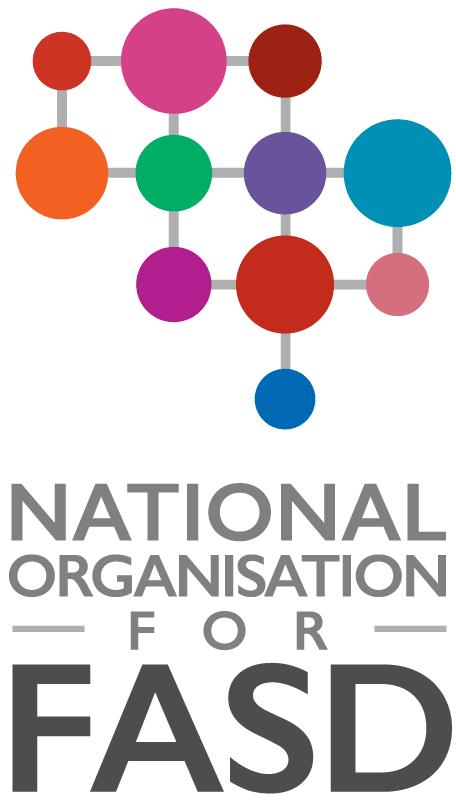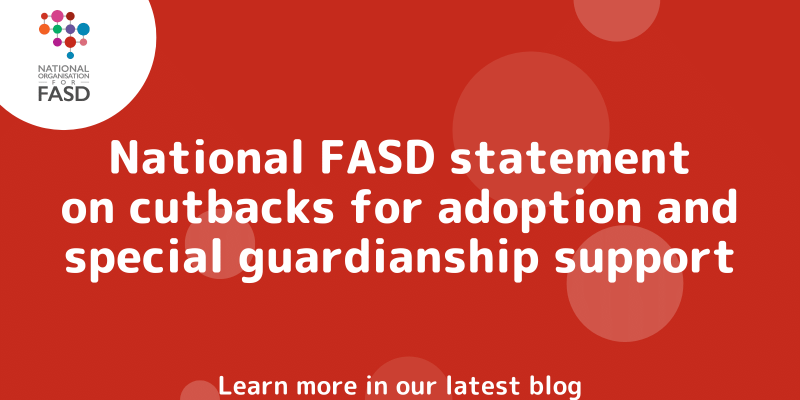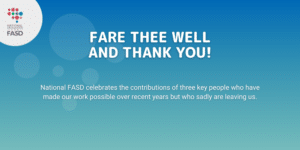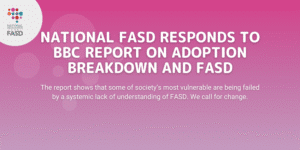National FASD's official statement on cutbacks for adoption and special guardianship support 15 April 2025
The reduction in funding for the Adoption and Special Guardianship Support Fund (ASGSF) will have a significant negative impact on assessments for Fetal Alcohol Spectrum Disorder (FASD) and the support provided to families affected by FASD and the 75% of children put up for adoption believed to have prenatal alcohol exposure. This combined with other recent cutbacks for disability benefits leaves the 2-4% of the general population with diagnosed and undiagnosed FASD extremely vulnerable. It is urgent that NHS bodies adhere to recommendations in NICE Quality Standard 204 and the DHSC FASD Health Needs Assessment. They must commission diagnosis and support for people with FASD and further prioritise FASD Prevention and Response by establishing a fund equivalent to 0.2% of the alcohol duty.
Yesterday (14/04/2025) the Department for Education announced a significant reduction in the funds available for making individual assessment of needs and providing support for adopters and some special guardians. The overall amount available for assessment and therapeutic input has been reduced to £3000 per year per individual. Previously in exceptional, complex cases there was a facility of increasing the funds available to support children and young people, this safety net has also been removed.
The National Organisation for FASD believes that this unexpected development makes the implementation of the recommendations from the NICE FASD Quality Standard 204 to provide local and timely diagnostic pathways for FASD and a lifetime management plan even more vital. Our research shows that the vast majority of NHS Integrated Care Boards are not yet commissioning for FASD diagnosis and support despite the savings this can yield in prevention of further harm.
While we are aware that significantly more children and young people live in families who have never had any involvement with social services, we also know that proportionally a significant number of care experienced individuals have lifelong organic brain damage and other health conditions due to FASD. These are among some of society’s most vulnerable as without diagnosis and appropriate support research has proven that they can end up living lives of desperation at great cost to their own mental health and wellbeing as well as to society since interventions without an understanding of FASD too often fail or cause further harm. In the absence of NHS commissioning in response to calls for improvement in quality of care around FASD from NICE and the DHSC, the Adoption & Special Guardianship Support Fund has been a key instrument in accessing multi developmental assessments and providing therapeutic support for children and young people who have or may have FASD. Indeed, the previous lack of proper NHS commissioning has given rise to private assessments that don’t always follow the current diagnostic criteria for FASD and we are alarmed that this trend might deepen. It is incumbent upon the NHS to urgently fill this gap with quality care and for Government to create an FASD Prevention and Response Fund equivalent to 0.2% of alcohol duties to put the UK on par with efforts being taken in other countries to address FASD.
This new status quo is not acceptable. It is now clear that the new reduced level of individual funds available will not be enough to pay for the complex multi developmental assessment needed to identify FASD and identify steps needed for appropriate care. If what little funding there is goes to diagnosis, there is too little left to contribute to any therapeutic interventions for those affected.
The National Organisation for FASD calls for an increased emphasis from all parties including Integrated Care Boards and Health Trusts in England and Wales on implementing the statements associated with the NICE Quality Standard 204 for FASD, including commissioning for FASD diagnosis and support, and for Government to set up an FASD Prevention and Response Fund.
For more information please contact: [email protected] or call 07920 747560.
For more information ...
If you’d like to learn more about the impact of failure to commission services for FASD and the confusion around implementing improvements in quality of care for FASD services as called for in NICE Quality Standard 204, see our report, Not Commissioned.
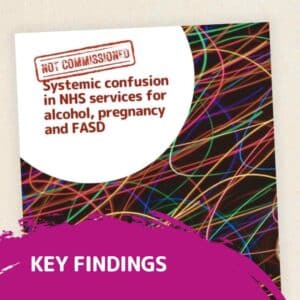
For more information on ways to improve services, drawing on best practice from across the UK and based on 9 roundtables with more than 60 practitioners and people with lived experience, please read our Time is Now report.

